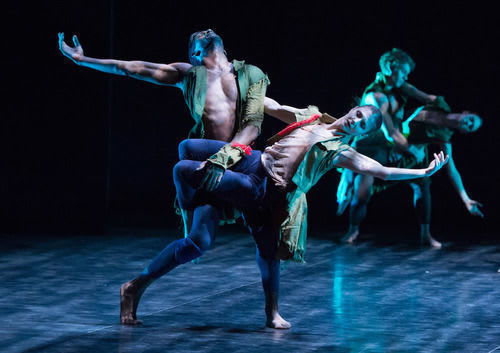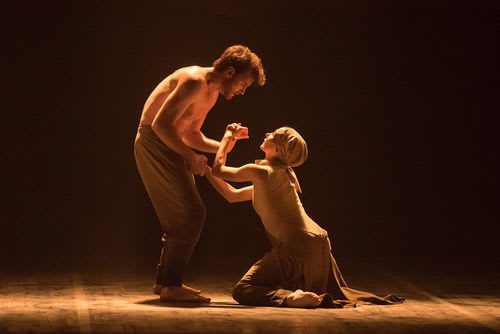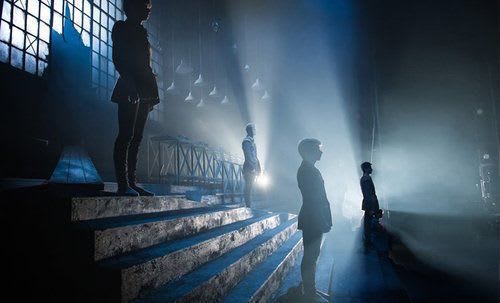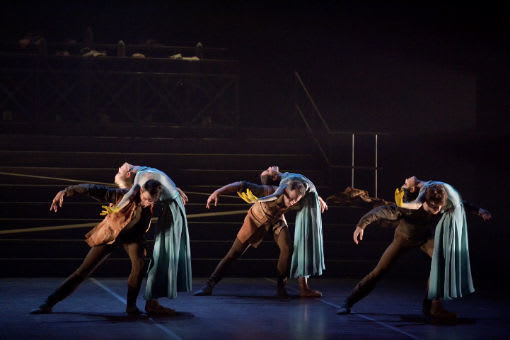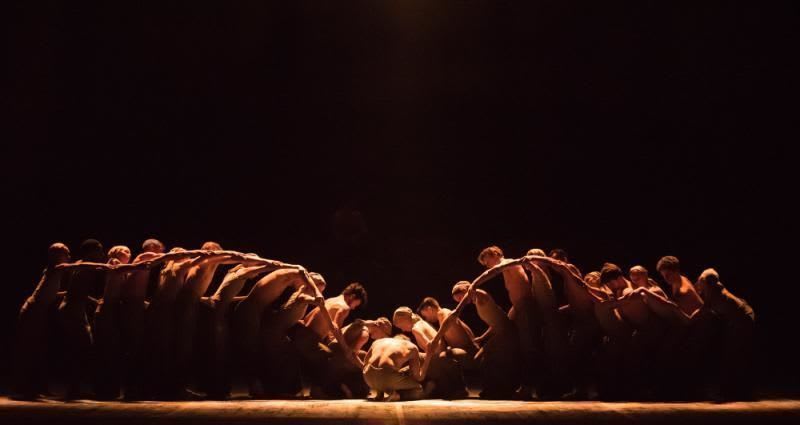This triple bill, commissioned by ENB to mark the centenary of the First World War, was first seen in 2014 a hundred years after it began and returns now a century after the Armistice that ended it. All three choreographers have produced work that is reflective and elegiac.
Liam Scarlett’s No Man’s Land, which opens the programme, is the longest at about 40 minutes. It is danced to an arrangement of excerpts from Liszt’s Harmonies and set in a war-damaged factory where women are packing shells with explosive: the ‘canaries’ as they became known because of the effect of contact with chemicals on their skin.
These are women without men, their mouths opened wide in a silent howl, bewailing separation and loss but then dark shapes rise from the ground and the men are there. Fondly, the women caress the men’s faces yet also gently push them away, a wordless equivalent of the old recruiting song “We don’t want to lose you (but we think you ought to go)”. Now the girls are hidden behind the men, just their hands reaching around them: still holding on though, they have gone or is it the lads at the front imagining their girl’s touch?
The music swells up in patriotic pomp but there’s an unsettling edge that undermines it. The women become weights on the men’s backs.
A change in Paul Keogan’s atmospheric lighting reveals a fissure in Jon Busor’s set through which a succession of men enter as though down duckboards over the mud between trenches.
A succession of pas de deux could be a romantic reunion but increasingly this does not feel like a real return but a memory that culminates in a tragically moving pairing of Alina Cojocaru and Isaac Hernández (making his debut in this role).
Second Breath, created by Russell Maliphant with music by Andy Cowton that pulses electronically, lasts only half as long. It presents a line of figures minutely swaying as Michael Hull’s lighting allows them to emerge from the engulfing darkness. Slowly and in slow motion, they extend their limbs, the men move backward and a phalanx of women are centre.
Real soldiers’ voices from War Museum recordings become part of the soundtrack, Dylan Thomas’s Do Not Go Gentle Into That Good Night too. Figures are born aloft, both men and women, lifted on bent backs, on shoulders, then collapsing lifeless before rising again, a succession of sacrifices and resurrections but elegiacally beautiful.
Alina Cojocaru and Junor Souza become the central figures in a group of romantic pas de deux slipping around each other’s bodies in increasingly inventive ways that express intense emotion. You desperately want these to be survivors, life given a second chance but you know it’s unlikely.
Dust is Akram Khan’s contribution to this triptych, danced to a score by Jocelyn Pook that combines pounding rhythms with what could be medieval church liturgy and lit in Fabiana Piccioli’s golden light.
At first, a man lies on the ground centre-stage, twitching in spasms, in agony, while behind him a long line, linked at the shoulders, forms a barrier, undulating. Is he wounded or is this a shell-shocked victim unable to get past his trauma? The line parts, he is let through. Lined up together, they cast dust in the air, the dust we return to or dust to blur memory?
The men go, up out of the trenches, leaving the women, strong women, keeping things going.
But one man comes back. In a final pas de deux, beautifully danced by Tamara Rojo and James Streeter, these may this time be real survivors, re-exploring their relationship when reunited, physically literally exploring new ways of holding on to each other in passionate rediscovery.
Though full of emotion, these three ballets eschew easy drama, their mood is more poignant, more reflective. Like so much dance, how you interpret them is up to the individual but they are undeniably moving and exquisitely danced by the whole company.
